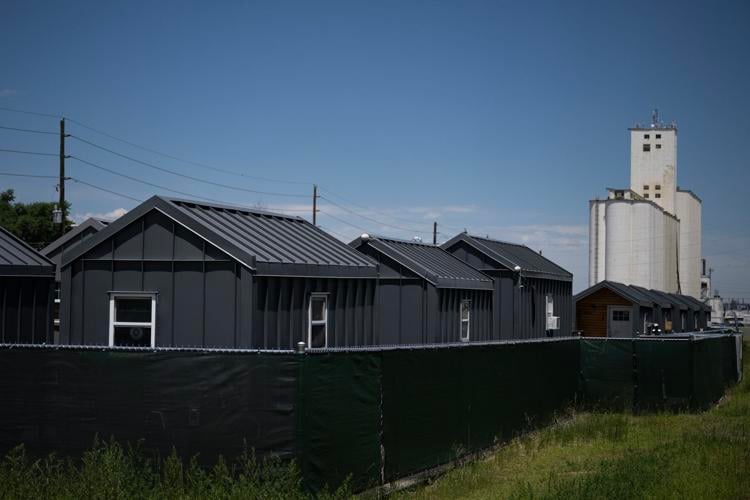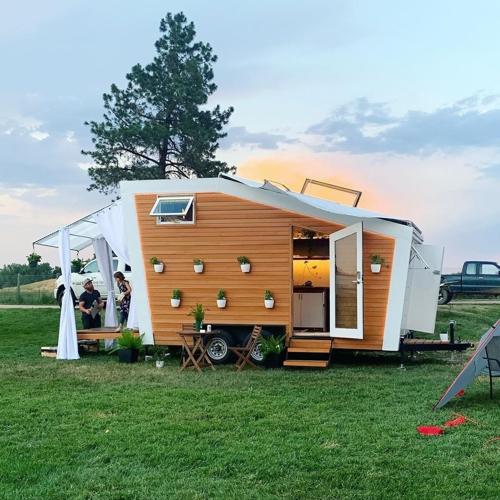Denver City Council approves funds for tiny home village expansion
The Denver City Council has approved amending an agreement with Colorado Village Collaborative to support the expansion of a tiny home village.
Its mission is to help homeless individuals transition to stable housing through a housing-first approach.
The new agreement adds $500,000, bringing the financial agreement total to $640,000, and adds roughly seven more months to its term. The contract’s new end date is Dec. 31.
Councilmembers voted on the resolution as part of a block vote on Monday without discussion.
The expansion will bring up to 20 more homes and a community center to the village at 4001 Monroe St. The funds will cover the cost of making the expanded site operational, including moving the units to the site, a sewer line, water and electrical connectivity, fencing, project management, grading and construction.
Colorado Village Collaborative staffs and manages the village, which already has 24 residences, an office and a community building, according to city documents.
The nonprofit partnered with the city to launch Denver’s first tiny home village in 2017 called Beloved Community Village.
An evaluation conducted of the Beloved site by the University of Denver’s Burnes Center on Poverty and Homelessness from July 2017 to April 2018 found that neighbors reported few concerns with the site, there was not an increase of crime near the village and that 10 out of 12 of the original villagers were still housed nine months after its launch. Three of those residents moved into permanent housing.
The village that Colorado Village Collaborative opened on Monroe Street in 2020 focused on supporting women. The units are roughly 100-square-feet each with electricity, heat, fans and outlets. The average stay is about a year, according to CVC. The temporary village is slated to run through 2024 with an option to renew.
CVC also operates Safe Outdoor Spaces, which are managed camp sites for homeless people, through a contract with the city.
The tent-based sites began in 2020 during the COVID-19 pandemic when traditional shelters were less safe for people’s health.






